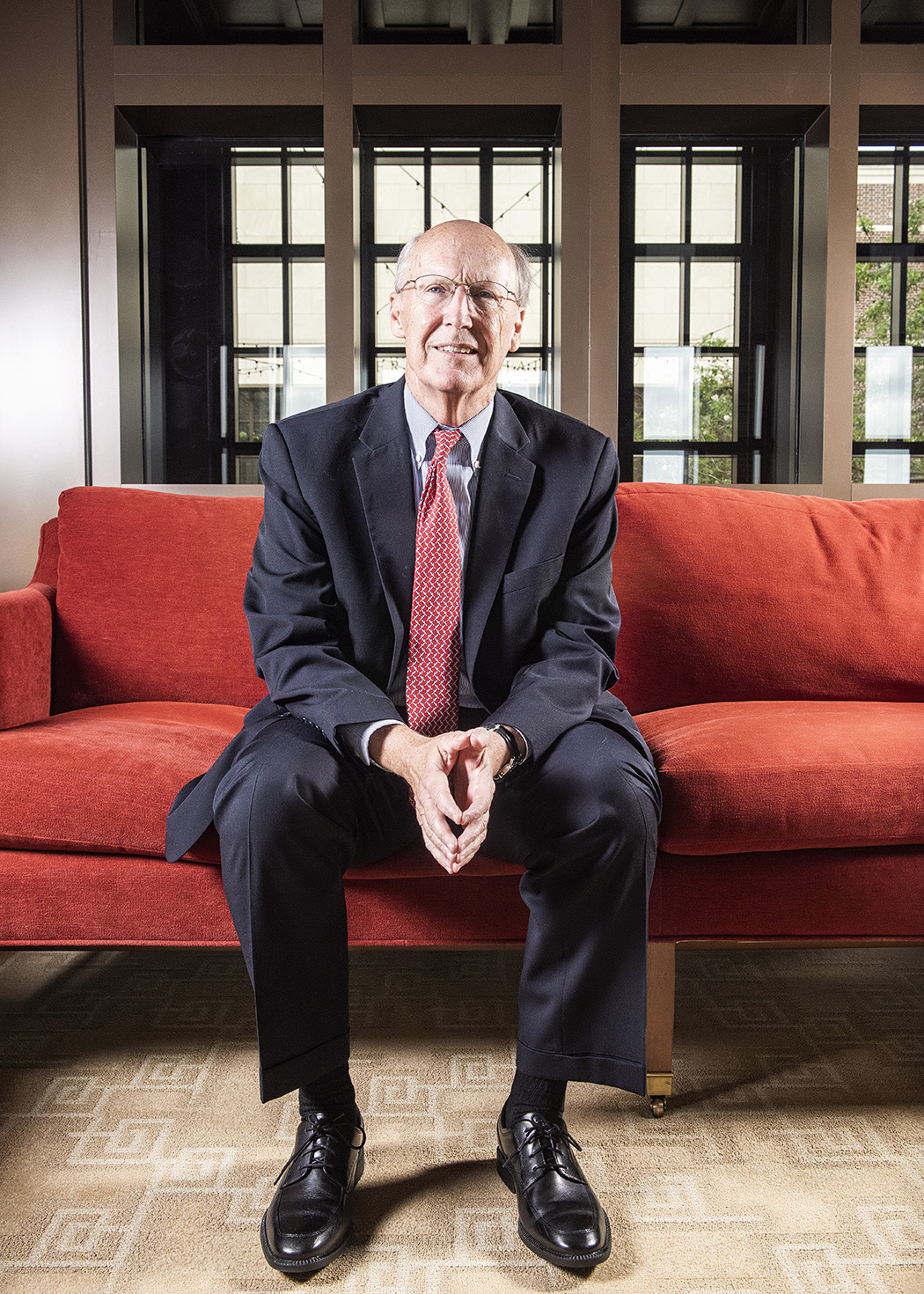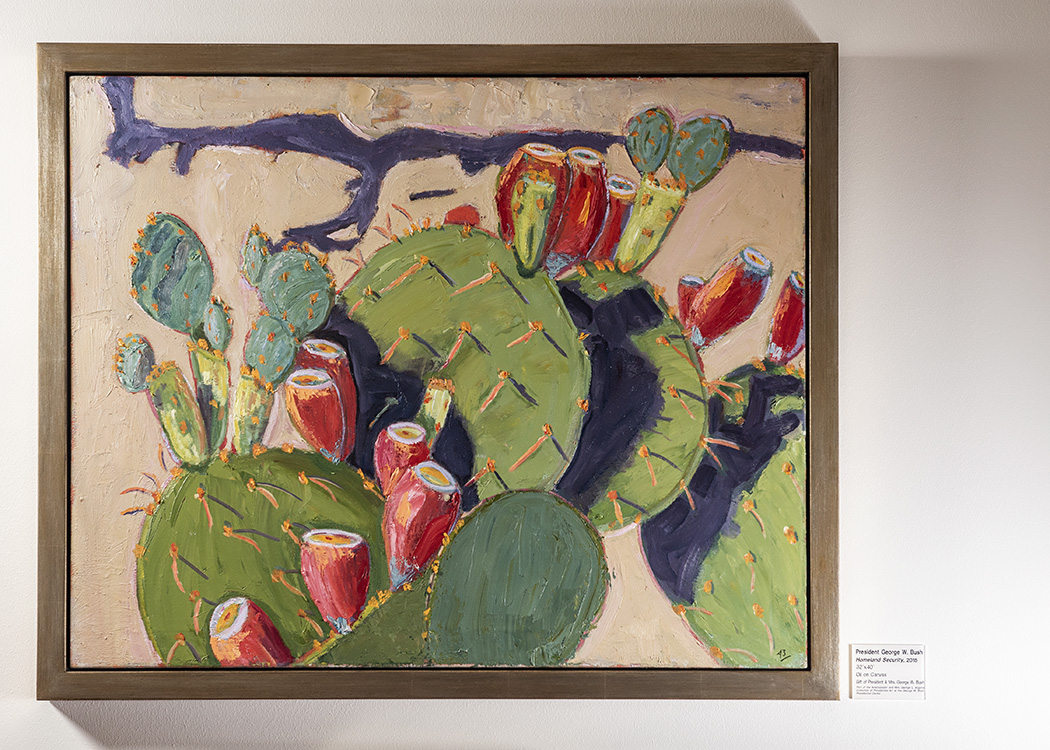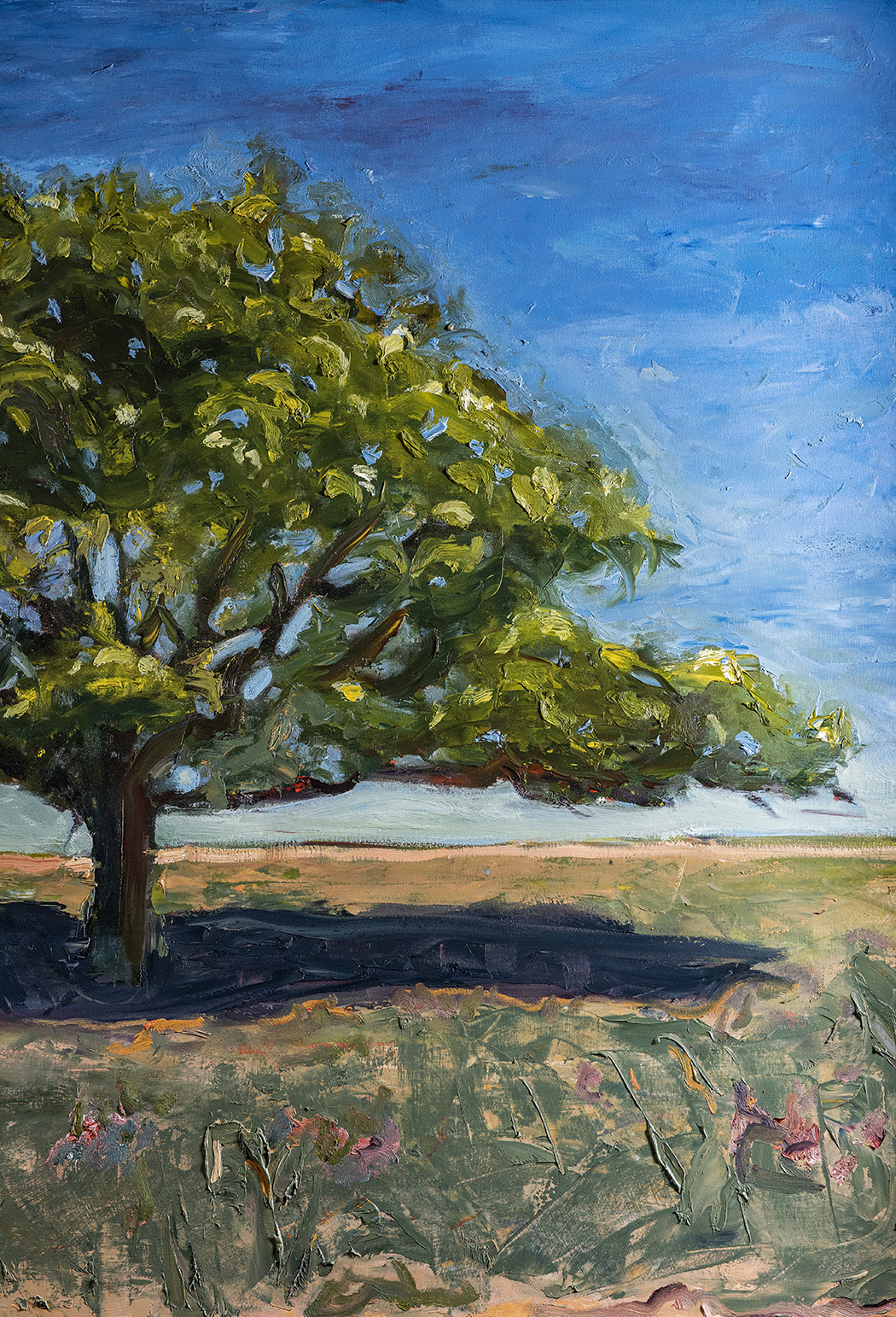
Photography by Danny Fulgencio
The editorial director of the George W. Bush Presidential Center, William McKenzie has lived in Kessler Park for 20 years with his wife, Jennifer Nagorka, a freelance writer and volunteer at Bishop Dunne Catholic School. They have two children. McKenzie, who served on the Dallas Morning News editorial board for more than 20 years, won the Pulitzer Prize for editorial writing in 2010, along with his colleagues Tod Robberson and Colleen McCain Nelson.

The painting“Homeland Security,” 2015, above, by President George W. Bush hangs in the Bush center.
What was your first job out of college, and how did you become a writer?
I was a banker, and I quit after two months. I hated it. I became a writer thanks to great professors in graduate school who helped me envision a writing career. I had written books to my grandparents as a child, mostly about sports. And, perversely, I loved writing term papers in college and seeing if I could fill out a blue book in three hours in exams. But I never associated those moments with a love of writing until my mid-twenties. After graduate school, I stumbled into editing a small political journal in Washington, and that allowed me the chance to practice, practice, practice.
What was it like to win a Pulitzer?
Humbling. Surprising. An honor.
You worked at the Dallas Morning News for 22 years. What do you miss about it?
The colleagues. We formed strong bonds. And being on the paper’s editorial page all that time was like being part of an ongoing tutorial focusing on issues that affect Dallas, Texas, the U.S., and the world. I loved that.
What do you not miss?
The constant deadlines!
How did you wind up at the Bush Center?
I was interested in a third – and I hope not final – chapter, so I came to the Bush Institute as editorial director. I also wanted to end up on a college campus, so this was perfect. I teach journalism as an adjunct lecturer at SMU and enjoy interacting with students.
How do you describe The Catalyst, the journal of the Bush library?
We are a journal of ideas whose mission is to apply the principles of compassionate conservatism to contemporary problems.
What are some of your favorite stories or interviews?
One was with President Bush and former British Prime Minister Tony Blair in Little Rock’s famous Central High School shortly before a massive storm forced us all to evacuate into a basement. That was different, maybe my favorite – and most memorable – interview of all time. Interviewing Sir Bob Geldof, the rock star, on Africa’s potential was another highlight. He is smart as a whip and a great conversationalist. I also vividly recall the sadness in the voice of Rabbi Lord Jonathan Sacks when I was interviewing him on the phone from London and had to tell him about yet another mass shooting that had occurred in the U.S. that morning. I love interviewing people, hearing how their minds work, so it is hard to choose among them.

This painting “My Charge to Keep,” 2017, above, is also by President George W. Bush.
Why should we be reading this publication?
We try to apply the values that George W. Bush articulated as both governor and president, so I hope people will be interested in hearing how they apply to contemporary challenges.
What else do you want our readers to know about the Bush Center and its resources?
Along with the above, we are a “do-tank” that seeks to engage communities here and abroad by developing leaders, advancing policy and taking action. That is our mission.
Do you ever feel like a token Republican in Oak Cliff?
I have never thought about that. I don’t consider myself terribly partisan in a tribal sense. I am more guided by values than tribe.
Do you have any advice for those who are spending time with Trump-supporting relatives this holiday season?
Be tolerant of each other whether they are Trump supporters or Warren supporters or whatever supporters. We can’t just hang out with people who share our views of the world. Our democracy depends upon us forming bonds that strengthen our communities. That’s not just a talking point. I really believe that, so may we all listen to “the other” during the season.




